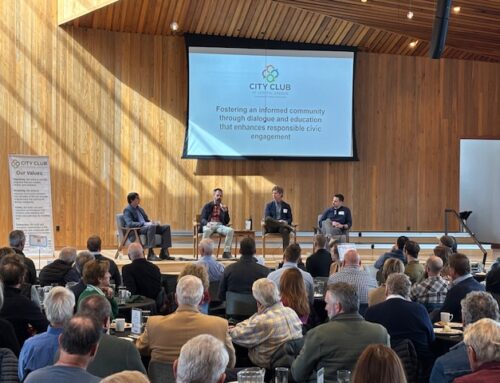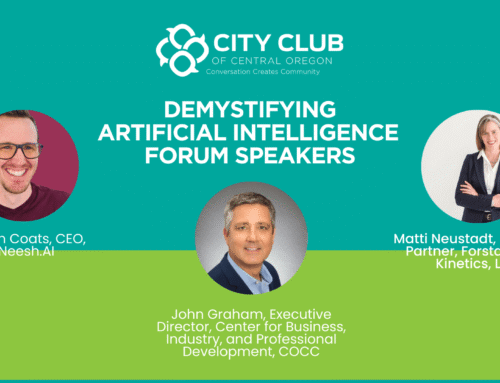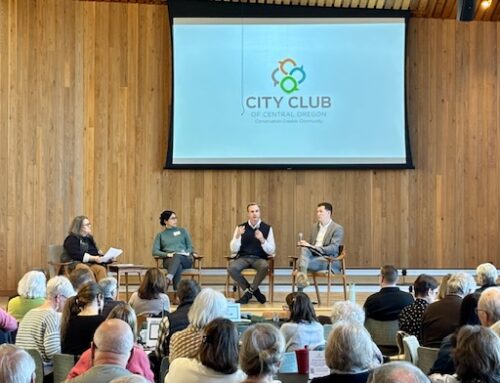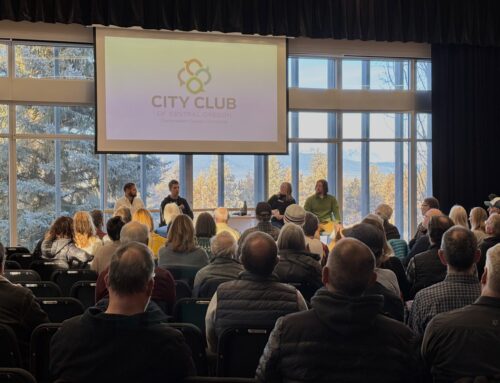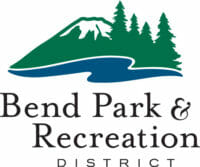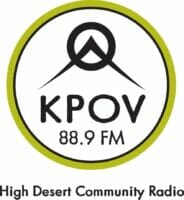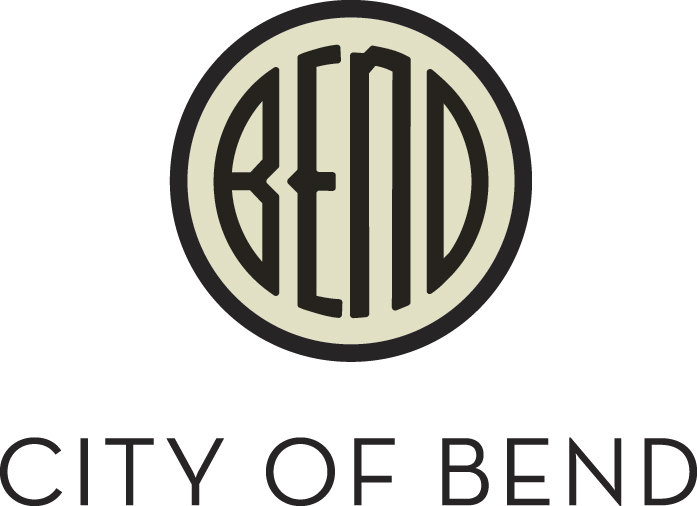Recap: Groundwater Grief, River Relief: The Status and Future of Central Oregon’s Water Supply
Forum Overview
The November 21st City Club of Central Oregon forum explored the complexities of Central Oregon’s water supply, highlighting the interplay of groundwater, surface water, climate change, and policy. Moderated by Emily Cureton Cook of OPB, the panel featured Tod Heisler of Central Oregon LandWatch, Ed Fitch, Mayor of Redmond, and Bobby Brunoe of the Confederated Tribes of Warm Springs.
The November 21st City Club of Central Oregon forum explored the complexities of Central Oregon’s water supply, highlighting the interplay of groundwater, surface water, climate change, and policy. Moderated by Emily Cureton Cook of OPB, the panel featured Tod Heisler of Central Oregon LandWatch, Ed Fitch, Mayor of Redmond, and Bobby Brunoe of the Confederated Tribes of Warm Springs.
Key Themes
-
Groundwater’s Role: Panelists emphasized the interconnectedness of groundwater and surface water. Bobby Brunoe explained how snowmelt feeds groundwater, which resurfaces in streams and rivers, supporting ecosystems like fisheries. Groundwater behaves more like a flowing river than a static lake, as Emily noted, meaning extraction in one location impacts water availability elsewhere.
-
Policy Challenges and Climate Impacts:
Mayor Fitch highlighted that Oregon’s water laws, established in 1909, need modernization to address today’s population growth and climate challenges. Groundwater levels are declining, with climate change driving 60–65% of the reduction. Inefficiencies in irrigation and 20,000 unmetered wells drawing up to 15,000 gallons per day exacerbate the issue. While cities use only a fraction of available water, the basin’s growing population and outdated water rights system strain resources. -
Cultural and Collaborative Approaches:
Bobby Brunoe stressed the importance of balancing water use with respect for natural cycles, acknowledging the role of the Creator in providing water. The Confederated Tribes of Warm Springs, instrumental in forming the Deschutes River Conservancy, advocate for cooperation among stakeholders to protect the region’s water future.
Audience Insights and Questions
- Legislative Action: The audience inquired about legislative efforts to tackle water management. While some progress has been made, Tod Heisler called for broader reforms, including updated surface water policies.
- New Developments: The potential impacts of new resorts on the river remain unclear, prompting calls for more comprehensive studies.
- Public Role in Policy Change: Panelists encouraged individuals to conserve water, engage with organizations like the Deschutes Basin Water Collaboration, and support incentives such as replacing lawns with drought-tolerant landscaping.
Looking Ahead
Collaboration and innovation are essential to ensuring sustainable water use. While change may take time, speakers recognized significant progress made through initiatives and conservation programs. As Central Oregon navigates these challenges, fostering community involvement and reevaluating outdated systems will be key to protecting this vital resource.
Collaboration and innovation are essential to ensuring sustainable water use. While change may take time, speakers recognized significant progress made through initiatives and conservation programs. As Central Oregon navigates these challenges, fostering community involvement and reevaluating outdated systems will be key to protecting this vital resource.
Special thanks to Central Oregon LandWatch for sponsoring the event and to everyone who attended or tuned in. If you missed it, you can watch the full discussion on here or on our YouTube channel.


